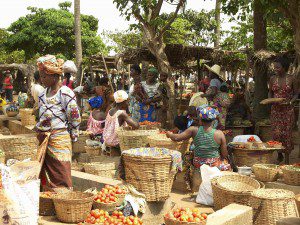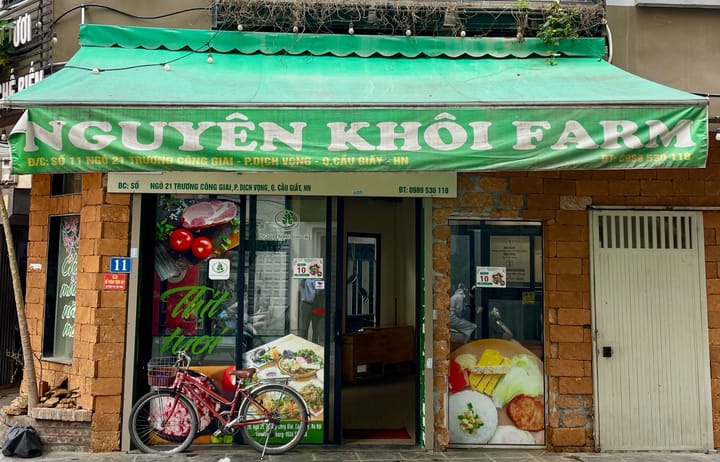Creating public-private partnerships in Agriculture

Today, I met with the senior management team of the African Fertilizer and Agribusiness Partnership (AFAP) in Johannesburg, South Africa. This non-for-profit organisation facilitates linkages between private and public actors to build markets in the agriculture sector –– specifically in fertilisers. It does this so that African smallholder farmers can grow food and profits.
AFAP works to:
Make fertilizer accessible and affordable for African smallholder farmers;
- Bolster capacity and incentive for fertilizer use;
- Foster responsible fertilizer use to increase crop yields and decrease food insecurity.
AFAP does this through what it calls “Agribusiness Partnership Contracts” (APCs), which are partnership agreements that allows AFAP to combine the expertise and dedication of the public and private sectors to improve fertilizer affordability and availability. Within these contracts, AFAP provides a range of possible support, including:
- Guarantees to fertilizer distributors for retailer credit;
- Financing assistance to importers or blenders to improve facilities;
- Training or logistical support;
- Help with warehouses at ports or inland;
- Assistance with retail improvements such as storage facilities and equipment.
In return for assistance, AFAP requires participating agribusinesses to:
- Engage in development efforts that will increase access, affordability and sustainable use of fertilizer to smallholder farmers;
- Provide contributions to the lives and communities of smallholder farmers and the markets in which they operate above and beyond the services the company offers in its regular course of business.
- Offer a long-term commitment to developing market infrastructure or capacity that bolsters sustainable fertilizer use.
AFAP is finding innovative ways of connecting the public and private sectors so as to create more inclusive markets for private investment in a key agriculture input.
There is growing awareness that more private investment and more efficient and inclusive markets are needed to drive the transformation and development of agriculture markets, but there a many practical challenges to be faced.
This year’s Africa Progress Report titled, “Grain, Fish, Money: Financing Africa’s Green and Blue Revolutions”, also examines these issues. It presents a number of interesting proposals for the development of agriculture and fisheries’ markets:
Share the wealth: Inclusive growth and expanded opportunity are essential to eradicate poverty.African governments should set equity targets linked to the post-2015 development goals. These targets would focus on narrowing gaps in opportunity. For example, they could include halving over five years the disparities in school attendance, child survival and access to basic services linked to rural-urban divides, wealth gaps and gender divisions. Strengthening the commitment to inclusive growth demands an expansion of social protection, including cash transfers to the poor. Governments should be diverting some of the 3 per cent of regional GDP they now devote to energy subsidies into well- designed social protection programmes.
Invest in Africa’s unique green revolution: African governments, the private sector and the global community must work together to invest in Africa’s unique green revolution. It is possible to double Africa’s agricultural productivity within five years. As outlined by the African Union, African countries can end hunger and malnutrition and become major players in global food markets. It is also vital to unleash the potential of sustainable agriculture and aquaculture to provide food, jobs and export earnings. Some of the requirements for achieving a breakthrough in agriculture are financial. Now is the time for governments to act on their pledge to spend at least 10 per cent of budget resources on agriculture. But governments also have to create the right market conditions. An immediate priority is the promotion of import substitution to cut Africa’s US$35 billion food import bill. This will require measures to cut tariffs and non-tariff barriers to regional trade, eliminate transport cartels, and develop marketing infrastructure.
Take the profit out of plunder: Africa’s resources should be sustainably managed for the benefit of Africa’s peoples. National and regional action alone will not be enough. The international community must develop multilateral systems that prevent the plunder of Africa’s resources. [In fisheries:] The global community must act collectively to unleash a blue revolution for ocean management. To stop the plunder of African fishery resources, all governments should ratify and implement the 2009 Port State Measures Agreement to tackle illegal unreported and unregulated (IUU) fishing, and establish a global register of fishing vessels. African governments should increase fines on IUU vessels, support artisanal fishing, increase transparency, and provide full disclosure of the terms on which commercial fishing permits are issued. [In forests:] All commercial logging concession contracts should be subject to full disclosure, along with the beneficial ownership structures of the companies involved. Concessions should be provided with the informed consent of the communities involved, based on a clear and accurate representation of potential costs and benefits.
Close the twin deficit in infrastructure and inclusive finance: African governments must close the twin deficit in infrastructure and inclusive finance. The lack of infrastructure is a bottleneck on growth and opportunity. The same is true of finance. Regional cooperation on energy and transport is vital in order to achieve economies of scale in infrastructure projects. African governments can also support the development of mobile banking and e-commerce to overcome financial exclusion, building on successes such as M-PESA in Kenya. Development finance institutions should work with the private sector to foster more balanced perceptions of risk.
Make tax and finance more fair and transparent: Strengthened domestic resource mobilization holds the key to financing for inclusive growth, with African governments investing in efficient and equitable tax collection. Governments should publish in a transparent manner all tax exemptions that are granted to corporate entities, both domestic and foreign. The estimated cost of the tax exemption should be made public, along with the reasons for the exemption and the principle beneficiaries. The international community must step up efforts to combat tax evasion. Multinational corporations operating in Africa should fully disclose their financial operations and tax payments. Building on current initiatives, governments should accelerate the automatic exchange of tax information and build Africa’s capacity to benefit from this information. All governments, including those of financially secretive jurisdictions, should establish public registries of beneficial ownership of companies and trusts. Multinational corporations can lead the way by publishing a full list of their subsidiaries, as well as information on global revenues, profits and taxes paid across different jurisdictions. The international community should also deliver on its aid pledge – and go one step further by cutting the cost of remittances. The G8 should work with African governments to cut the cost of remittance transfers to a maximum of 5 per cent. That means curtailing restrictive business practices on the part of money transfer operators, strengthening competition, and creating incentives for the development of low-fee mobile remittance payments.
Kofi Anan, Chair of the Panel, says:
“Africa is standing at a crossroads. Every day, throughout our continent, Africans prove time and again their resilience and creativity. From artists and musicians through to policy makers, humanitarians, campaigners, we have millions of individuals with wells of physical and moral courage. Our continent has no shortage of human talent. If Africa’s citizens can freely use all theirs talent and creativity, then Africa can truly be prosperous, stable, and fair.”
For too long, agriculture development has been left in the hands of extension services that are delivered without a good understanding of the role of agriculture markets. While extension services are important, they need to be provided with a clear understanding of the business of agriculture. Small-holder farmers are part of a broader market system, even though they are often marginalised by this system. The challenge is to find ways through which these farmers can better understand the markets and mechanisms that connect them to expanding market opportunities. Markets are not the only answer to the problems of small-holder farmers and agricultural enterprises, but they are an important part of the overall package of solutions that can help them to become more productive, profitable and sustainable.


